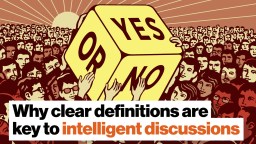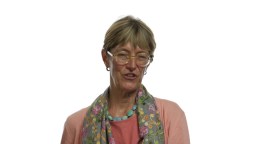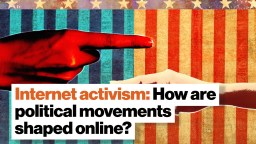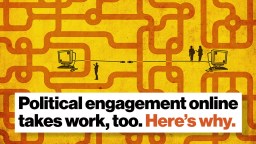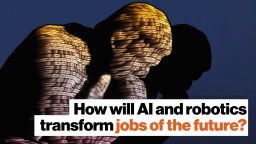The Present
All Stories
Ads from political figures are exempt from fact-checking, according to Facebook’s recently updated policies.
In the fight between talent and hard work, hard work usually wins.
A second step is to determine where violence concentrates and who is most at risk.
It’s telling about attempts to save the industry.
Being precise about our ideas doesn’t just allow us to have better conversations, it’s also an incisive way to learn.
▸
6 min
—
with
Fifty years ago at UCLA, the first message was sent over the predecessor to the internet.
▸
with
Data centers are likely to consume up to 4.1% of electricity around the globe by 2030. Can they go green?
Tens of millions of Americans consume cannabis regularly. They’re likely ingesting high levels of toxins. Only the federal government has the power and the resources to protect them.
Superposition, entanglement, qubits, and Google’s big announcement.
Electrochemical methods such as this could someday dramatically reduce greenhouse gas emissions around the planet.
We can produce more stuff with less labor. So why are we still working?
The new method appears to be more efficient and cheaper than current carbon capture technologies.
Overcoming assumptions when it comes to gender and capabilities is the key to a successful society.
▸
4 min
—
with
The Response Act calls on schools to increase monitoring of students’ online activity.
Just for giggles, would it be a good idea to have our leaders take shrooms?
In today’s political world, building a campaign team that is dedicated to a digital presence is key to winning.
▸
4 min
—
with
Scientists find common chemicals can negatively impact pregnant women.
How do you say “spiel”? Whether you say “shpeel” or “speel” may have to do with how you vote.
Philosopher Nick Bostrom’s “singleton hypothesis” predicts the future of human societies.
Researchers evaluated the best and worst ways to remove greenhouse gases from the atmosphere in a recent report.
We should care about constitutional rights for all, says lawyer and religious freedom scholar Asma T. Uddin. If they are denied for some, history demonstrates how they may be at risk for us all.
According to recent papers by Zucman, and his colleague Emmanuel Saez, one should be implemented.
When adults are challenged to behave like adults, by a child, they can go in one of two directions.
Recent years have seen countries across the African continent investing deep into the tech industry. Rwanda is angling to get ahead of the pack.
Hackers look for open doors. If your personal data isn’t protected, it’s that much easier to compromise your identity.
▸
3 min
—
with
A new book by constitutional attorney Andrew Seidel takes on Christian nationalism.
When these particles are eaten by earthworms, the results are not good.
When it comes to effectively propagating a message in the modern day, few do it quite like internet activists.
▸
3 min
—
with
New technology offers us a look at the green future of aviation and cargo shipping.
We can either be fearful of artificial intelligence, or embrace it as a tool to help us improve service.
▸
3 min
—
with




